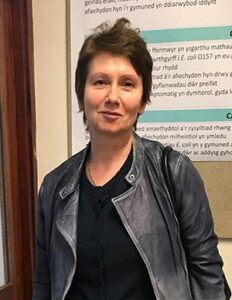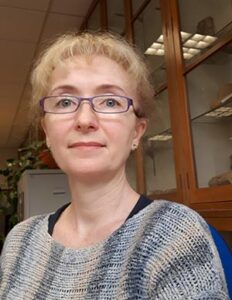Founded in 1884, Bangor University has a long tradition of academic excellence and a strong focus on the student experience. Bangor University is ranked in the top 40 in the UK for research, according to the Research Excellence Framework (REF) 2014. The REF recognised that more than three-quarters of Bangor’s research is either world-leading or internationally excellent, ahead of the average for UK universities.
The School of Natural Sciences from the Centre for Environmental Biotechnology is located in North Wales, close to the forests and mountains of Snowdonia, and the cliffs and sandy beaches of Anglesey. Its high quality research and teaching is based on zoology, biology, forestry, geography, agriculture and conservation. Prof Peter Golyshin is director of the Centre for Environmental Biotechnology and Chair in Environmental Genomics. CEB aims at building the capacity and facilitate the research in industrial applications of extremophiles.
WP1: Representing the project management and coordination activities.
WP2: Implementing machine learning platform to screen enzymes demanded by manufacturers.
WP3: Implementing activity-based platforms to screen enzymes demanded by manufacturers.
WP4: Implementing systems for producing and characterising enzymes and finding best ones.
WP5: Improving the performance of the best enzymes through novel engineering techniques.
WP8: Focusing on dissemination, exploitation and communication.

Dr. Olga Golyshina
is the Reader in Environmental Microbiology and Biotechnology. She is a key CEB staff responsible for discovery new extremophiles and production (meta)genomic data for biotechnology applications. She isolated the majority of known genera of hyperacidophilic Thermoplasmata, and conducted OMICS studies on their ecophysiology.

Dr. Tatyana Chernikova
is a research officer in the Centre for Environmental Biotechnology, Bangor University. She has over 40 peer-reviewed scientific publications, patents and book chapters. In the past, she worked in reputed research institutions in Germany (Technical University and Helmholtz Centre for Infection Research in Brunswick) focussing on application of molecular and metagenomics tools to assess microbial diversity in hydrocarbon-degrading marine environments and applications of oil-degrading bacteria, enzyme discovery in microbial communities and new microbial taxa. She has been involved in a range of the National and EU-funded research projects.

Dr. Anna Khusnutdinova
holds a BSc and a MSc in plant physiology by the Kazan State University (Russia). She pbtained her PhD in biochemistry in the Laboratory of Biochemistry and Physiology of Phototrophic Organisms from the Institute of Basic Biological Problems (Russian Academy of Sciences, Pushchino, Russia) with the project: “Molecular genetic approaches for studying HydSL hydrogenase of Thiocapsa roseopersicina”. Her postdoctorate research is conducted in the area of biochemistry and enzyme engineering: first in the Laboratory of enzyme engineering of the University of Toronto (Canada), and nowadays in the Centre of Environmental Biotechnology of the Bangor University (UK).





